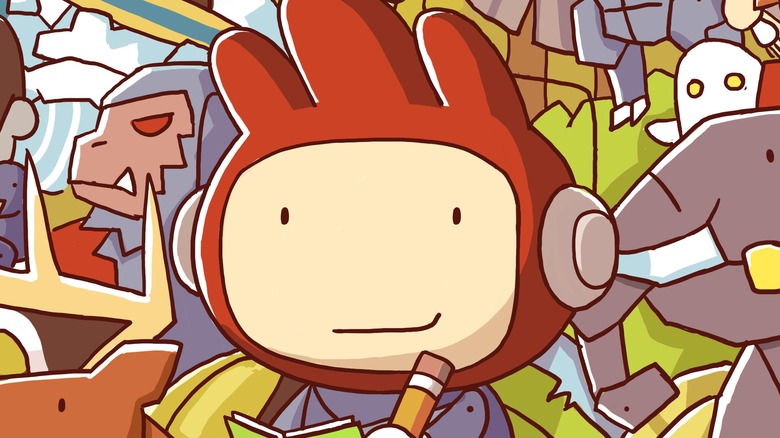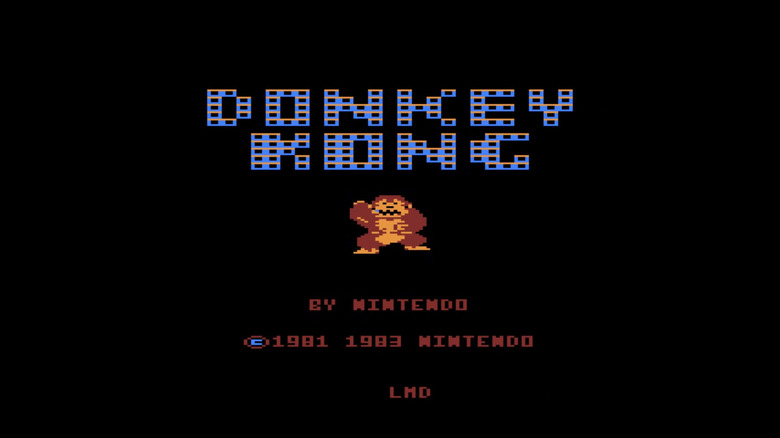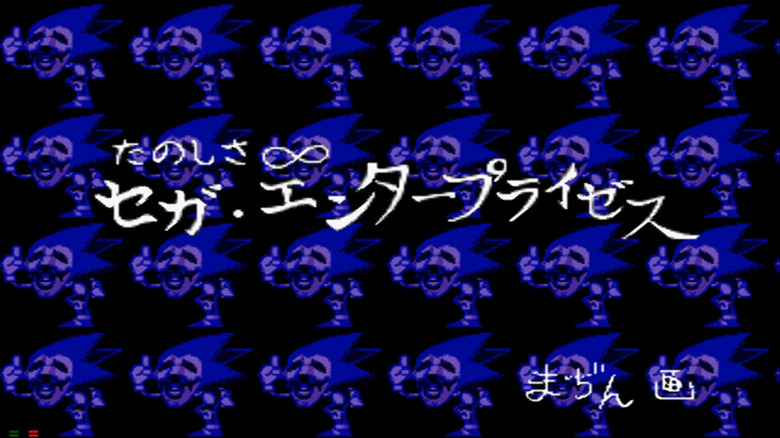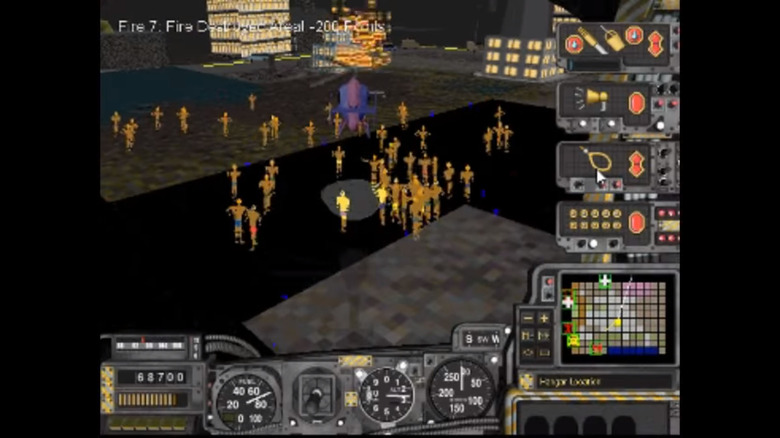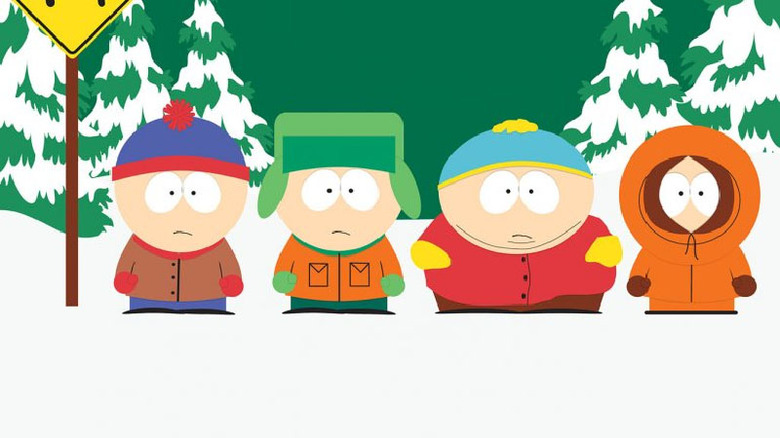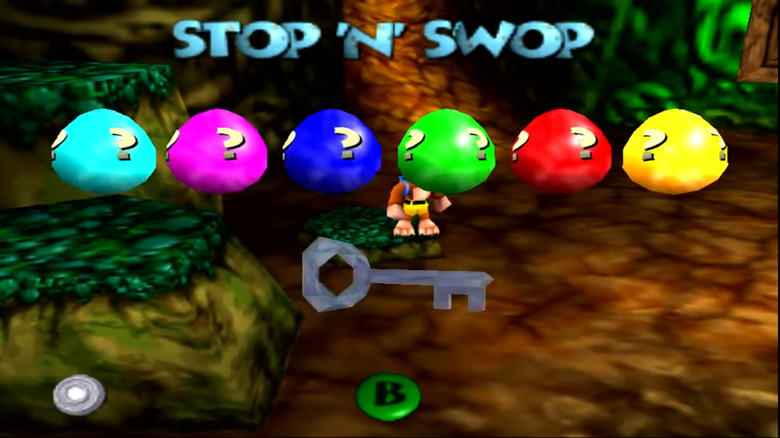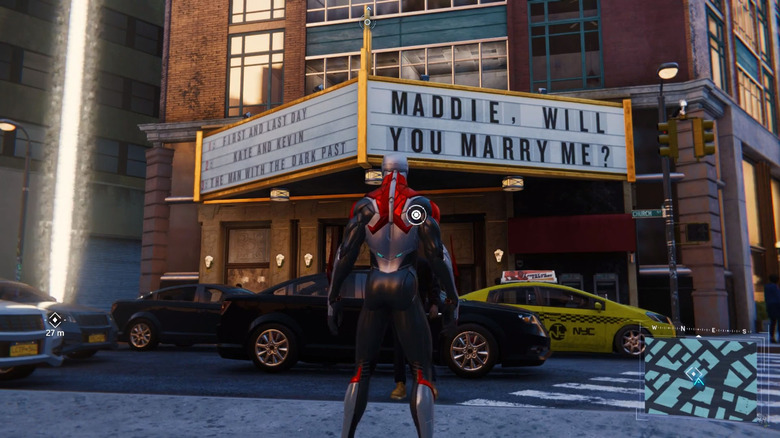Easter Eggs That Totally Backfired
Developers put Easter eggs in their games for all kinds of reasons. In the old days, when video games shipped without credits, people simply wanted to sign their work. That's why Warren Robinett snuck his name into the Atari 2600 title Adventure, creating what's commonly — and incorrectly — known as gaming's first Easter egg.
These days, Easter eggs are used for all kinds of reasons. Sometimes, they're there because a dev wants to put his or her personal stamp on the game. At others, they're secret notes for friends and loved ones. An Easter egg can pay tribute to the video games, movies, and television shows that the developers love, or, like Diablo's cow levels, serve as an in-joke for fans.
But Easter eggs aren't perfect and neither are the people who make 'em, and occasionally they go bad. These ones certainly did. From out-of-date messages to hidden goodies that ended up costing studios millions, the following Easter eggs didn't deliver like their creators intended. That's the thing about secrets: they're fun to look for, but you won't always like what you find.
The man behind the monkey
Look, when you work hard on something, you want credit — and if someone's not going to give it to you, you might as well take it for yourself. That's why Robinett put his name in Adventure, and it's why Landon M. Dyer followed suit when he created the Atari 400 Donkey Kong port from scratch. See, back in the day, port programmers didn't get any help from the original developers. No code, no design documents, and no direction. The publisher simply bought the license, and then their programmers played the original game ad nauseum until they could recreate it to the best of their abilities.
That's tedious work, but it also gives the programmer a whole lot of freedom. Free from Nintendo's oversight, Dyer was able to sneak his personal stamp onto Donkey Kong's title screen: his initials, LMD. It wasn't there all the time, of course. If it was, it wouldn't be much of an Easter egg.
But Landon made one big mistake. Credits only work if people see them, and the process for unlocking the Donkey Kong Easter egg is so complex that nobody did. Over the years, even Dyer forgot how it worked, and the secret remained, well, secret until Dyer leaked its existence, prompting one hobbyist to pick through Donkey Kong's code. By the time he found it, it was 2009. Donkey Kong had been out for 26 years. Like Dyer said, "It's totally not worth it."
Sonic CD's (not-so) satanic secret
By the time that Sonic CD arrived in '93, post-game credits sequences were already a thing. Masato Nishimura didn't have to hide his name in the Sega CD's flagship game to get recognition. He just did it for fun. If you press a certain sequence of buttons at the title screen, you go to the sound test screen. After another sequence, you'll be greeted by some unsettling music and a hidden message. Translated, it reads, "Infinite Fun, Sega Enterprises. Image by Majin."
The screen is creepy, especially if you don't speak Japanese and can't figure out what's going on, but it's not supposed to be. According to Nishimura, "Majin" was his childhood nickname. He stuck it into Sonic CD, as well as a bunch of other games, to make himself stand out. It's a little bit of an ego boost, a little bit of a joke, and completely harmless.
Unfortunately, not everyone sees it that way. As Legends of Localization explains, not only is "Majin" is spelled kind of strangely in the original text, leading to some odd translations, but it's got a second meaning, too. In Japanese, "majin" refers to a creature with powerful magic abilities. There's no direct equivalent in English, but many Japanese-to-English dictionaries define the word as "evil spirit" or "devil." Pair that misinterpretation with the unsettling backing track, and suddenly Nishimura's goofy Easter egg transforms into a (supposedly) satanic message that's still haunting uninformed Sonic fans to this day.
Corporate sexpionage
Back in the '90s, 33-year-old programmer Jacques Servin decided to give himself a birthday present. While working on SimCopter, Servin decided that, when the calendar hit September 30, Servin's date of birth, the brass band that greets players after a successful mission would be replaced by men in skimpy bathing suits. Even worse, the "himbos" had light-up nipples and kissed each other. The horror! Servin, who's gay, claimed that the Easter egg was intended to address the lack of homosexual characters in video games (a $5,000 bounty from digital prankster group RTMark played a big part in his decision, too).
But this was 1996. That's about the same time that President Clinton signed the Defense of Marriage Act, which prevented the federal government from recognizing same-sex marriages, a couple of years before Matthew Shepard was beaten and killed for his sexual orientation, and right when the moral panic surrounding games like Night Trap and Mortal Kombat were reaching fever pitch. In other words, American culture wasn't exactly accommodating of video games with "controversial" content.
And so, Maxis fired Servin, cannily citing "insertion of unauthorized material" — and not the actual smooching — as the reason for his termination, although it also implied that gay relationships weren't family-friendly. Remember: 1996. At any rate, in the aftermath, Servin was out a job, AIDS activists called for a Maxis boycott, and Maxis scrambled to patch the 78,000 copies of SimCopter already out in the wild, despite the fact that it'd only received a handful of actual complaints.
Still not the worst thing that Tiger Woods has ever done
If you weren't around at the time, it's hard to describe exactly how big South Park was during its heyday. These days, with over 20 seasons under its belt, South Park is television's profane elder statesman. When it first came out, however, it was edgy, hip, and unfathomably popular. Sure, parents and teachers hated it, but that made kids love it even more, and it only took a couple of months before South Park was everywhere. It even popped up on Tiger Woods PGA Tour '99.
South Park wasn't supposed to be on Tiger Woods PGA Tour '99, of course. While South Park is super dirty, golf is not, and PGA Tour '99 shipped with an E for Everyone rating. Someone at Electronic Arts must've been a fan, though, because if you put the PlayStation disc in a PC CD-ROM drive, you'd find the proto-viral video that launched the whole franchise, "The Spirit of Christmas."
South Park weathered the storm just fine. Electronic Arts, on the other hand, wasn't so lucky. In order to keep the "objectionable" material out of the hands of kids who already knew how to watch it for free on the internet, EA recalled 100,000 copies of Tiger Woods PGA Tour '99, quite likely spending hundreds of thousands (if not millions) of dollars in the process. Whoops!
Stop, swop, and roll
Buckle up. This one gets complicated. In 1998, Rare and Nintendo released Banjo-Kazooie, a non-linear 3D platformer full of puzzles to solve, powers to acquire, and collectibles to round up. It's also home to one of gaming's biggest mysteries: the "Stop 'n' Swop," which Rare refused to talk about for close to a decade.
If you gather all of Banjo-Kazooie's collectibles and then beat the game, the ending sequence shows a couple of other treasures hidden in Banjo-Kazooie's sprawling levels. Spurred on by the tease and armed with cheat devices, hackers eventually determined you could get those items in-game if you had some secret codes. The items even activated a new option on the main menu, "Stop 'n' Swop," that didn't seem to do, well, anything.
It was a mystery, and for very good reason: originally, the Stop 'n' Swop items were supposed to be more than Easter eggs. They were supposed to tie Banjo-Kazooie to its sequel, Banjo-Tooie. See, using an exploit in the Nintendo 64, players were going to be able to trade items between the two games by physically swapping the cartridges. Unfortunately, in the time gap between Banjo and Kazooie's two adventures, Nintendo updated the N64 hardware. Originally, players had ten seconds to switch the games. On updated hardware, however that dropped to one. That simply wasn't enough time, and Rare had to scrap the Stop 'n' Swop entirely. Is it still an interesting story? Sure. Is it a great Easter egg? Eh, as it turns out, not so much.
Keyboard Cat plays Scribblenauts off
Who owns memes? It's a legitimate question. On one hand, a meme is, by definition, a shared object. It's only popular because the public shares it, remixes it, and makes it into a thing. On the other hand, someone had to make the meme in the first place, which means they've got a legitimate claim to the material — and, in some cases, they're happy to enforce it, too.
5th Cell, the studio that developed Scribblenauts, learned that the hard way. See, Scribblenauts' big gimmick is that it's in-game dictionary that lets players summon anything they can think of. That makes the game's puzzles incredibly open-ended, and it's a great way to hide a few Easter eggs in the game, too. Keyboard Cat's inclusion helped make the game a viral hit. Heck, the key-tickling feline even helped Scribblenauts get a nod in the grey lady herself, the New York Times.
Scribblenauts Unlimited, which released in 2012, followed suit by putting Nyan Cat in the game. Then, trouble started. While internet users made the two cats famous, Keyboard Cat and Nyan Cat are owned by Charles Schmidt and Christopher Torres, respectively. Neither of the men took kindly to seeing their creations used in the game, which was published by Warner Bros., without permission, and they sued. Warner Bros. settled out of court, Schmidt and Torres ended up getting paid for their efforts, and neither kitty was ever used in a Scribblenauts game again.
Not even the proportional strength of a spider can save this relationship
It's hard to make a marriage proposal truly unique. Popping the question on the local arena's jumbotron? Eh, it's been done. Dropping to one knee at someone else's wedding? Please, just don't. Hiding your proposal in one of the year's biggest video games? Now you're on to something.
At least, that's what Tyler Schultz thought when he reached out to Insomniac Games via Twitter and asked them if he could propose to his girlfriend, Madison, using Marvel's Spider-Man. Amazingly, Insomniac agreed. When the game came out, the phrase "Maddie, will you marry me?" appeared on the marquee at one of New York's movie theaters. However, between Schultz's May 2018 request and the game's September 2018 release date, things changed: Schultz and Maddie broke up, rendering the Spider-Man proposal the "saddest Easter egg" in video game history.
It gets worse. Oh boy, does it get worse. As the story went viral, Madison Gamble started to tell her side of the story, and it wasn't pretty. Schultz is prone to violent outbursts, Gamble says. Their relationship was more like that of a mother and a son than lovers. She didn't leave Schultz for his brother, like he claimed. She doesn't even like video games, really. Worst of all, though? Schultz's fellow gamers started harassing Gamble online, forcing her to flee social media.

